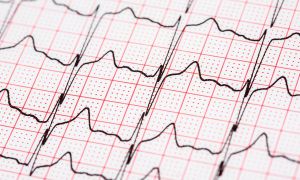If you smoke cigarettes, quitting the habit can help prevent atrial fibrillation, because nicotine is a stimulant that can trigger the irregular heartbeats of this disorder. On top of that, smoking doubles your risk of having a stroke. Cigarette smoking also increases blood pressure, which is a risk factor for both atrial fibrillation and stroke.
Talk with your doctor about stopping smoking. There are over-the-counter and prescription medications that are effective in helping people quit cigarettes. Once you make the commitment to stop smoking, stick with it. Remove all reminders of cigarettes such as ashtrays from your home and office. In addition, try new routines such as having coffee outside or walking the stairs at work instead of smoking, to distract yourself.
Continue Learning about Atrial Fibrillation
Important: This content reflects information from various individuals and organizations and may offer alternative or opposing points of view. It should not be used for medical advice, diagnosis or treatment. As always, you should consult with your healthcare provider about your specific health needs.

